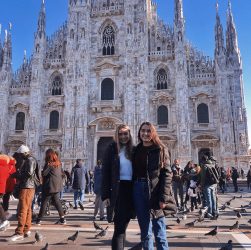In December 2017, which was the end of my third year of my bachelor’s degree program in Industrial Engineering, I …


In December 2017, which was the end of my third year of my bachelor’s degree program in Industrial Engineering, I …

Pre-departure: Here you should focus on your preparations for your trip abroad. It should include information about the visa application, …

I had always considered study abroad to be an amazing experience I had dreamt to partake in some day, but …